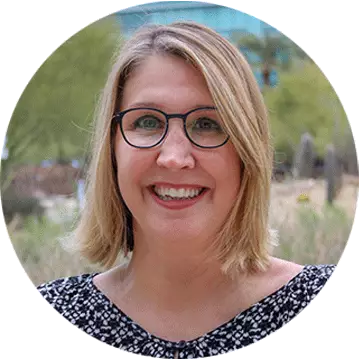Finding grants for continuing education
This article was updated on March 21, 2024.

Written by Michael Feder

Reviewed byТ Chris Conway,Т Director of Financial Education Initiatives and Repayment Management

In many cases, continuing education (CE) is an opportunity for people to further their academic and career pursuits by increasing their academic knowledge and strengthening their skills. In others, CE is necessary for obtaining licensure, earning recertification or staying current with developments and changing requirements in oneтs profession or industry. Teaching, mental health care, nursing, accounting and a host of other professions often require individuals in these fields to pursue continuing education.Т Т
CE comes in many forms, from formal graduate degrees, certificates and research to less intensive seminars, workshops and courses offered through professional organizations. Above all, the various forms of CE help professionals enhance their skills and learning.
One aspect of continuing education to consider is the cost. Graduate degree and other professional development programs typically require tuition, and some professionals opt to pursue various types of financial aid to help make their CE programs more affordable.Т
Continuing education grants are another option adult students might consider when looking to further their professional studies. Grants differ from other types of financial aid, like loans, as they generallyТ don't require repayment. In addition, many returning adult students qualify for grants, which often have specific eligibility criteria.
Sounds good, right? But first you need to know what to look for in a grant and where to find one.
Here, Chris Conway, the director of financial education initiatives and repayment management at АФУХЬьЬьВЪПЊНБМЧТМ, shares her recommendations on where to start.
Start by filling out the FAFSAТЎ ДкДЧАљГОЬ§
АеГѓБ№Ь§Т form is the first step toward qualifying for federal financial aid, including federal grants. Before completing the FAFSA form, you need to create an FSA ID. The FSA ID is a username and password that allows you to identify yourself electronically to access the U.S. Department of Education systems and to electronically sign your FAFSA form.
The FAFSA application helps you potentiallyТ qualify for federal grantsТ and other forms of aid from the government and your college or university. This may include continuing education grants specifically for adult learners and grants geared toward a particular field of study, such as business or nursing.
The FAFSA was recently updated to offer a more streamlined experience. Unveiled in December 2023, the new form includes fewer questions but is designed to more accurately assess students' need for aid and improve accessibility.
Continuing education grants and scholarships
Grants for continuing education tend to be . Scholarships may also be need-based, but many are merit-based, meaning theyтre awarded for things like good grades or outside leadership activities.
Some scholarships are dedicated explicitly to fundingТ bachelorтs or master's degrees, making them a good way to pay for continuing education. These options are not specifically awarded or discovered through the FAFSA application process and will have to be researched and applied for separately.
Scholarships may also require an essay and often have deadlines applicants need to observe. The good news? There are lots of scholarships out there, so start looking early and keep looking throughout your continuing education experience.
With regard to grants, try checking whether a higher education institution offers them for continuing education, especially if youтre attending a school dedicated to professional development or adult learners.
Grants for continuing education for adults may also be available through industry or professional associations, nonprofits and charitable organizations. Employers may have grant or scholarship programs to help employees update their skills too. These could be available for degree or certificate programs (or both!).
Many available grants and scholarships target specific groups of students, such asТ veterans, single parents and those underrepresented in higher education. However, applicants might have to meet very specific requirements. As an example, the P.E.O. Program for Continuing Education offers for women whose education has been interrupted and must get a job to support their families.
Ultimately, itтs important to start early when it comes to researching grants for continuing education and to take your time. In this way, you can ensure you explore all available options that fit your specific situation.
Conway describes best practices for applying to grants: тMake sure youтre eligible for any grants you apply for and to ask the school if you arenтt sure of your enrollment status and how that ties to eligibility. Keep looking for grants and scholarships, talk to your employer and check with professional organizations in your field.т
A good place to begin your search for a continuing education grant is with the federal government. Consider the following:
Federal Pell GrantsТ
Administered by the U.S. Department of Education, grants through Т are available for undergraduate students.
Pell Grants can provide up to $7,395 per yearТ for students with demonstrated financial need for the 2024-25 school year (this amount can change each federal financial aid award year). These grants generally do not need to be repaid, which makes them attractive to students who cannot afford to pay out of pocket for their college education.
In addition to financial need, students must meet basic eligibility criteria for a Pell Grant. To apply, simply fill out the FAFSA form online or speak with your schoolтs financial aid office for more information.
Federal Supplemental Educational Opportunity Grants (FSEOG)Т
provides grants for continuing education to undergraduate students who demonstrate exceptional financial need. The U.S. Department of Education funds this program, and itтs administered through individual colleges and universities.
FSEOG grant amounts vary from $100 toТ $4,000 per year. To be eligible for an FSEOG grant, applicants must complete a FAFSA application and demonstrate exceptional financial need.
Many schools have limited funding available, so you will want to complete your FAFSA application as early as possible to be considered for FSEOG funds. Talk with the financial aid office at your college to better understand what your school might award.
Find grant foundations near youТ
You can visit online resources, such as the Council on FoundationsтТ Ь§ДЧАљЬ§,Т to findТ charitable organizations and foundationsТ that may offer grants in your community. These useful sites provide information about the types of funding available, eligibility requirements and application deadlines.
Your local library may also have resources for researching continuing education grants for adults and other sources of financial assistance. Additionally, you can check with the financial aid office at your school to see if local foundations have partnered with your institution to offer grants, scholarships or other forms of aid.
By investing a bit of time into researching options, you may be able to secure additional funds for college that could help you save money and make your education more affordable.
Start saving money on your degree at АФУХЬьЬьВЪПЊНБМЧТМТ
ЖйОБВѕГІДЧБЙБ№АљЬ§ways to save moneyТ on your degree at АФУХЬьЬьВЪПЊНБМЧТМ:
- College transfer credits from accredited universities and colleges
- More than 1,500 alliance organizations that provide employee tuition assistance
- Credit for eligible military training
- Credit for relevant personal and professional experience
- Every new qualifying student receives a scholarship or a better offer
- Lower-cost general education courses from alternative credit providers
- Credits from national testing exams, like CLEP and DSST
Going to school as a nontraditional student isnтt always easy, but resources are available to help you along the way. Check out the Savings ExplorerТЎ tool to get started.

ABOUT THE AUTHOR
A graduate of Johns Hopkins University and its Writing Seminars program and winner of the Stephen A. Dixon Literary Prize, Michael Feder brings an eye for detail and a passion for research to every article he writes. His academic and professional background includes experience in marketing, content development, script writing and SEO. Today, he works as a multimedia specialist at АФУХЬьЬьВЪПЊНБМЧТМ where he covers a variety of topics ranging from healthcare to IT.

ABOUT THE REVIEWER
As Director of Financial Education Initiatives and Repayment Management,Т Chris Conway works with departments across the University to provide resources that allow students to make more informed financial decisions. She is also an adjunct faculty member for the Everyday Finance and Economics course at the University, and she chairs the National Council of Higher Education Resources College Access and Success Committee. Conway is committed to helping college students make the right financial decisions that prevent future collection activity.
This article has been vetted by АФУХЬьЬьВЪПЊНБМЧТМ's editorial advisory committee.Т
Read more about our editorial process.
Read more articles like this:Т Т Т Т Т Т Т Т Т Т Т Т Т Т Т Т Т Т Т Т Т Т Т Т Т Т Т Т Т Т Т Т Т Т Т Т Т Т Т Т Т Т Т Т Т Т Т Т Т Т Т Т Т Т Т Т Т Т Т Т Т Т Т Т Т Т Т Т Т Т Т Т Т


